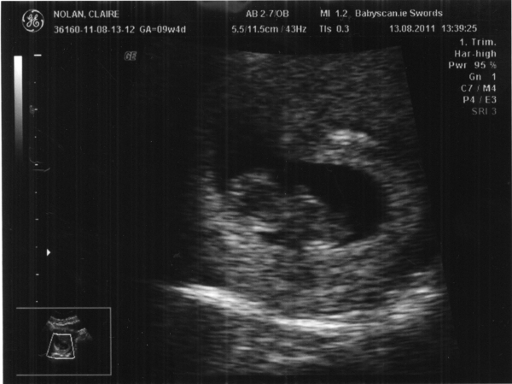With biscuit incoming, I’ve been reading quite a bit, as you’d do yourself. Thing is, there are a lot of books on parenting, and not many decent indexes or comparative reviews of the books out there, and so you wind up reading a lot of blurbs and reviews of books to try to figure out which ones you should then go buy and read in full (you can’t read everything, there’s not enough time).
Here’s the question – why is every book on fatherhood given a blurb that says it’s witty, pithy, touching, and “tells you all you need to know”? It’s annoying – I don’t need wit or pith in these books, I don’t want touchy-feely, and as to “tells all you need to know”, if I knew all the things I needed to know about, I wouldn’t need the book, and since I don’t, doesn’t that mean I can’t tell if it really does have all I need to know? Damn blurbs. Should just call them “marketing lies” and get it over with. Harumph.
Where are the books that explain in dry, boring, accurate, technical detail what’s going to happen, what needs to be done, and gives you multiple ways to try to do it? You know. Books for people who need to know the job, the best approach to the job, the tools needed for the job and then to be left get on with it? People who don’t read parenting books for entertainment, but for information? I understand that some people need the emotional support from a book written by a stranger for money, but I’m pretty sure — because I’m a part of it — that there’s a demographic of people with a three-digit IQ, who know their own minds, and who are looking forward to parenthood. These people don’t need handholding, and they’re fairly well able to figure things out. And I don’t mean they’re rocket scientists, though I’d bet good money that there are rocket scientists in the demographic too. I mean that if you can change brake pads safely on your car with the aid of a Haynes manual and then drive it, you can figure out a nappy change without needing wry humour, pithy observations on life, emotional therapy or insight into the universal truths of mankind and puppies. (And the Haynes baby manual is the worst offender, betraying the entire spirit of that line of books).
Trouble is, reading medical journals gives you that data from fairly well-constructed studies that get reviewed by professionals; but they mostly cover medical treatment rather than day-to-day parenting. So you learn that not clamping or cutting the umbilical cord until pulsations cease decreases the odds of anemia in the first few years of the child’s life by a third in return for a higher chance of jaundice (but phototherapy is easy so it’s better not to cut the cord early); and that C-sections may have SIDS implications for subsequent children; and that children delivered prior to week 39 have higher odds of health problems in the first 18 months even though they’re considered perfectly safe and viable today; and that aural canal and temporal artery thermometers are just not as good as rectal thermometers or oral thermometers in pacifiers for neonates with fevers; and other large chunks of useful data with proven sources. But these studies aren’t usually gathered together in a useful format for parents – they’re aimed at health professionals and researchers. And there are precious few studies on more basic aspects of parenting or broader areas; studies are done to expand knowledge which usually means they’re tightly focused on one thing, and usually are out looking at new things, rather than testing older things (though you do still find surprises, so always check pubmed first). And to top all of that, pubmed‘s abstracts are usually free (and are usually all you need to read), but the full text of articles in general aren’t even close to free unless you’re in a college.
What’s needed is a decent book on the mechanics of all of this, not the philosophy. Preferably one whose medical citations are from the JAMA, BMJ, Lancet or New England Journal of Medicine, and based on double-blind clinical trials and peer-reviewed research instead of “My mom always did it this way and
The ideal book would be localised so that things like vaccination dates and so on can be discussed – and please don’t say “Oh, we couldn’t talk about that, it’d create legal liabilities!”. I mean, use some common sense. If I can get a book showing step-by-step how to change my brakes, and nobody worries about brake failure and plowing through a crowd of pedestrians in 1.5 tons of metal at 60mph killing dozens of people; but a book saying “Get your baby vaccinated at date X” is a liability because Jenny McCarthy can’t pull her head out of her voluminous backside for long enough to get a proper job, then our world is badly broken. Yes, the Public Health Nurses are great and will pass on data about this; but they tell you themselves that there will be conflicting data from them and from the doctors at 6-week checkups (which in themselves are something they only tell you about after baby is born), and reading through their leaflets… well… most of it is good, but look, the food pyramid was discredited quite a while back, and honestly, who wrote the bit that said that breast-fed babies’ poop doesn’t smell? Because I have a few binloads of evidence to the contrary! And when you spot clangers like that, it affects your confidence in the remainder unless you can go to a third party and verify it, and at that point, well, why not go to the third party to start with?
So what is out there?
Guess what, “old media” loses again, and “new media” is right there providing what you need, usually for free. Pubmed, BabyCenter.com, Parenting.com, Dad.ie, Rollercoaster.ie, Boards.ie’s pregnancy and parenting forums and sub-forums, Eumom.ie, Mumsnet.com – all of these have hard data, reviews of equipment by people who’re actually using it, and so on. To be honest, the only book I could recommend anyone buy when all those sources are out there for free, would be Safe Baby-Handling Tips, and that’s only because you need the laughs. Though I wouldn’t throw out Annabel Karmel’s Complete First Year Planner, even if I only kept it for the recipes.


